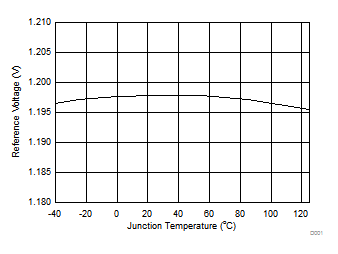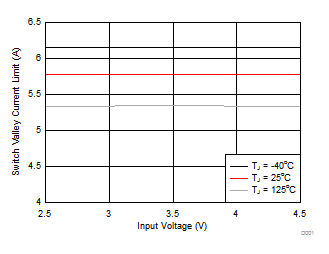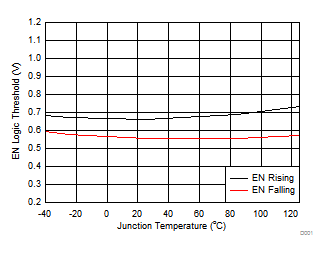SLVSCZ5B July 2016 – October 2018 TPS61230A
PRODUCTION DATA.
- 1 Features
- 2 Applications
- 3 Description
- 4 Revision History
- 5 Pin Configuration and Functions
- 6 Specifications
- 7 Detailed Description
-
8 Application and Implementation
- 8.1 Application Information
- 8.2
Typical Applications
- 8.2.1 TPS61230A 2.5-V to 4.5-V Input, 5-V Output Converter
- 8.2.2 Systems Example - TPS61230A with Feed Forward Capacitor for Best Transient Response
- 9 Power Supply Recommendations
- 10Layout
- 11Device and Documentation Support
- 12Mechanical, Packaging, and Orderable Information
Package Options
Mechanical Data (Package|Pins)
- RNS|7
Thermal pad, mechanical data (Package|Pins)
Orderable Information
6.6 Typical Characteristics
VIN = 3.6 V, VOUT = 5.0 V, TJ = -40°C to 125 °C, unless otherwise noted.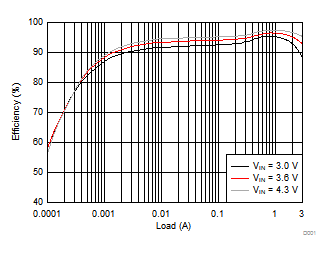
| TA = 25 ºC |
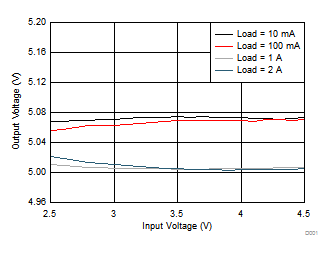
| TA = 25 ºC |
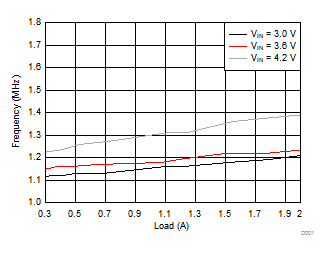
| TA = 25 ºC |
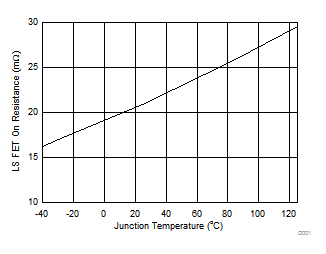
| VOUT = 5 V | VIN = 3.6V |
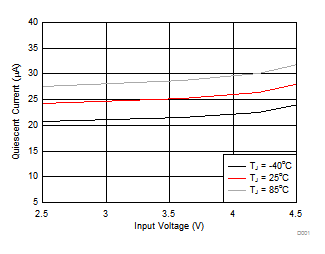
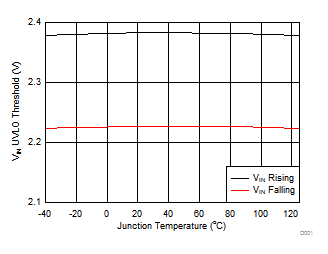
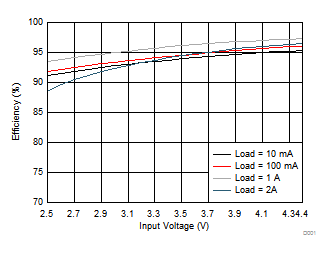
| TA = 25 ºC |
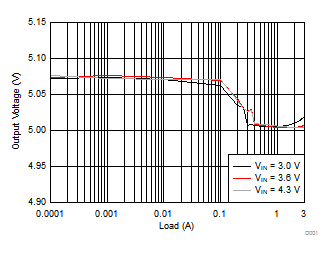
| TA = 25 ºC |
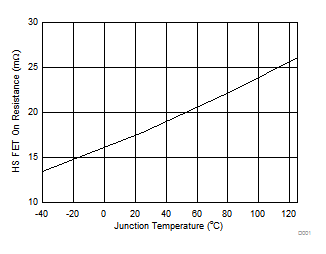
| VOUT = 5 V | VIN = 3.6V |
